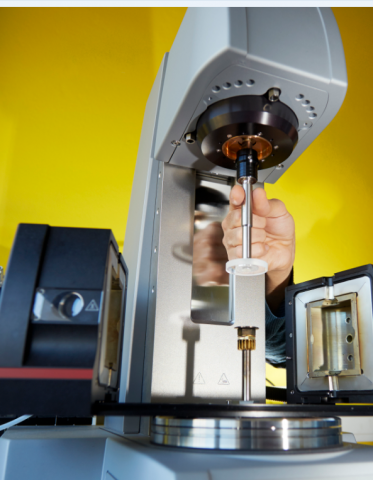
Research Themes
The plastic shaping processes all include an essential phase which involves heating or cooling the material and / or its environment. A better understanding of the thermomechanical behavior of polymeric materials during their transformation is therefore essential for the optimization of the process and the control of production costs. In this perspective, modeling is an essential tool: it allows the development of numerical simulations aimed at to optimize the operation of machines and thus make the process more competitive by improving the quality of products and reducing energy consumption. In addition, the fields of scientific investigation concerning polymers and composites are vast and important basic research work remains to be conducted. Laws of behavior of the materials during their transformation as well in liquid phase as solid, influence of the parameters of the process on the properties of the finished object, adaptation and optimization of the tools, reduction of the energies of implementation are as many current subjects of basic scientific research that technological locks for industrialists.
Our activities aim to better understand the physical phenomena related to the transformation of polymer and composite materials in order to model them and to optimize the processes of their shaping. They include an experimental component (observation, understanding, characterization) and a theoretical component (modeling and numerical simulation). The scientific perspectives are on transfers in materials, processes and material-process interfaces. They are guided by the multiphysical couplings, mainly thermomechanical and rheological, which govern these materials and processes at different scales, but also by the complex interaction that represents the triptych process / structure / behavior of the materials. Our researches are spread out according to a continuum of scales, from local to global, from fundamental to application:
One of our scientific goals is the development of models linking the kinetics of microstructure transformation of materials to the thermal kinetics applied to them. This analysis implements global parameter identification models, generalizable, but based on the knowledge of the physics of these materials. The reduction of models makes it possible to experimentally identify these parameters by fine measurements but simple enough to be implemented directly for different types of materials.
University of Santiago de Chile, Mc Gill University (Canada), CREPEC Canada, SIGMASOFT® Germany, University of Tiziouzou (Algeria), University of Carthage (Tunisia), Vrije Universiteit BRUSSEL, Universidad Politecnica de MADRID.
LMFA- University Lyon 1, University of Strasbourg, LTN-University of Nantes, University of Haute Alsace (Mulhouse), ENSAM Paris, Plastipolis Competitiveness Cluster, GDR MIC Composite Materials.
European Plastics Pole (France), Compose Tools (France), Solvay (Rhodia France), Roctool (France), Plastic Ominum (France), EVE System (France), Influtherm (France), Mecaplast (Monaco), Olesa Iidustrials de Moldes SA (Portugal), Centro Ricerche FIAT (Italy), Repol SL (Spain).
Thermal transfers, Materials, Polymers, Composites, Rheology, viscoelasticity, crystallization, transformation processes (injection, thermoforming, pultrusion, rotomolding, sintering, etc.), plastics, thermal instrumentation, thermophysical characterization.
Thermal molds in plastics
Members of the AFM, ASME, SF2M (President of the South East Section), PPS
